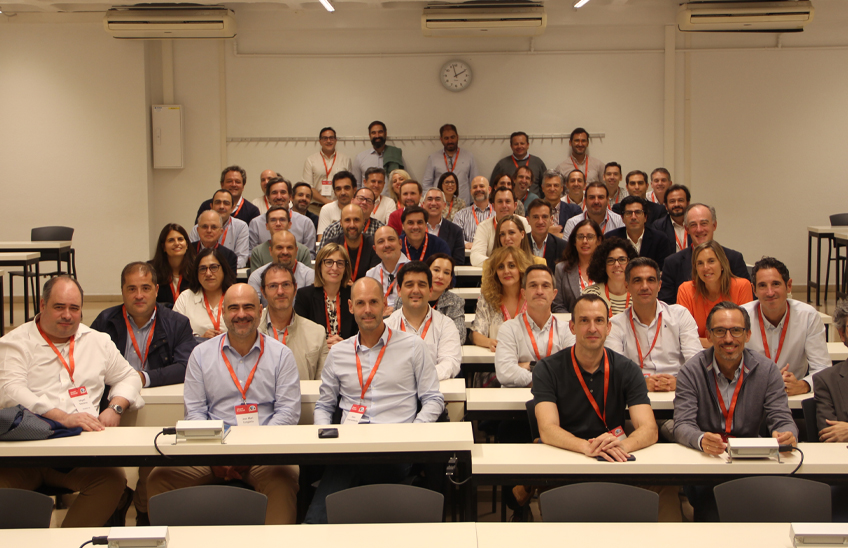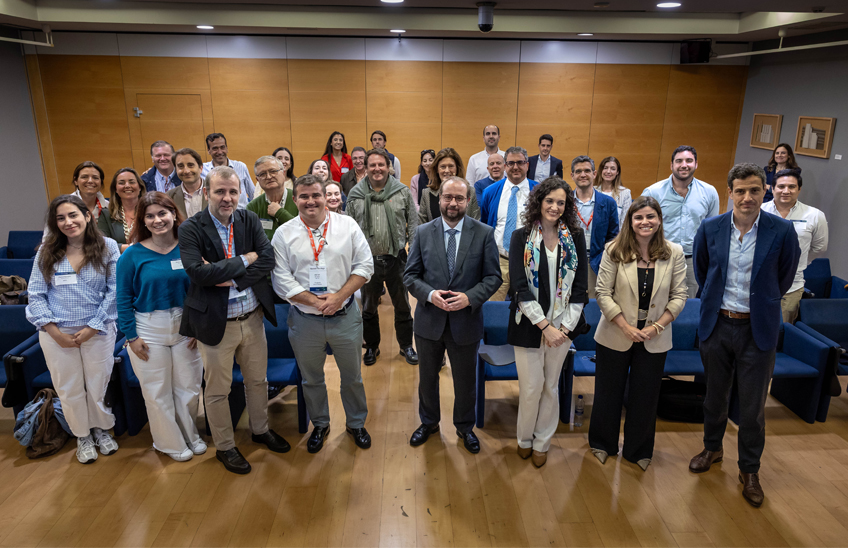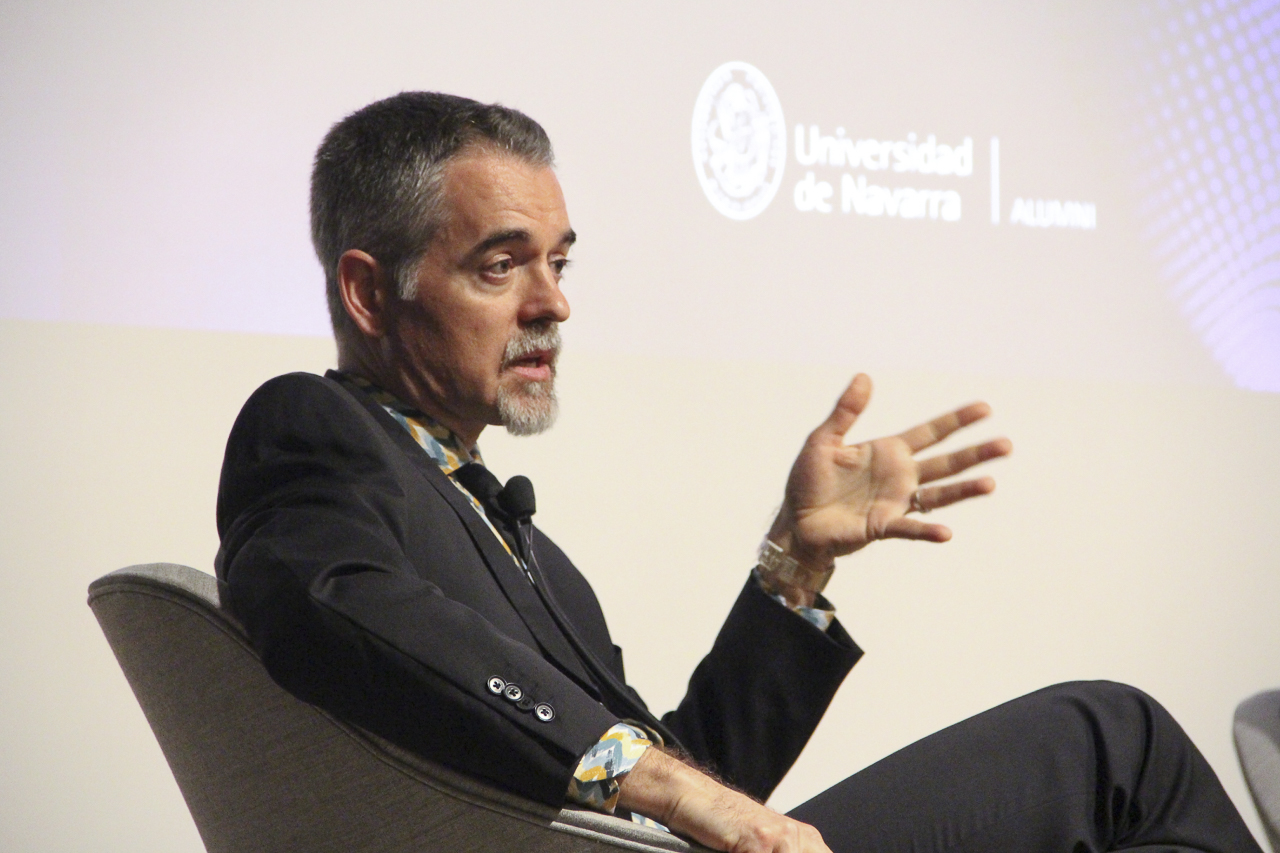Dr. Carlos Centeno: "Palliative care has a positive impact not only on patients, but also on their families, students and healthcare professionals".
Drs. Carlos Centeno and Julio Gómez spoke at the Alumni Meeting Bilbao about the fruits and positive consequences of palliative care for patients, families, professionals and students.

FotoAlumni/AlumniMeeting Bilbao attendees at auditorium of COAVNBIZ where the event was held.
13 | 03 | 2023
The alumni of Bilbao met quotation last March 9th at the second Alumni Meeting of the University. The event, organized by the board Alumni of Biscay, began with a presentation of the University's Strategy 2025 by Carlos Naya (ARQ'89|PhD'96), director of the School of Architecture. Carlos Centeno, Full Professor of Palliative Medicine at the University of Navarra, and Julio Gómez, coordinator of the Palliative Care Service of the San Juan de Dios Hospital in Santurce, followed with a dialogue graduate "Palliative Medicine: advanced medicine for the patient and the health system".
The doctors discussed the fruits that palliative care brings to all the people around internship: patients, their families, professionals, rotating students and society in general. "The profound relief of pain - which sometimes takes on tinges of healing and cure - is the greatest fruit in patients treated with palliative care," Dr. Centeno said. "The patient goes through a process throughout treatment that leads him or her to live his or her last days having regained confidence and security," he added.
For his part, Dr. Gómez insisted on the importance of the patient's acceptance of his disease in order to regain serenity and be able to "live the rest of his life in the best possible way". Both speakers agreed that reducing physical and emotional pain is a determining factor for patients, but also for their families. Thus, the impact of palliative care extends beyond the patient: "the main reaction of the families is exceptional gratitude," said Centeno.
During the talk, they also discussed the impact that this internship has on the students who rotate through the department, since "the experiences they observe make them enthusiastic about their profession and shape them as doctors or nurses," said Centeno. "It is essential for students to get close to hospital palliative care units to learn naturally that death is just another part of a person's life," added Dr. Gómez.
The professionals in the healthcare team are also positively impacted by this internship, as "they help us to grow professionally and personally," said Centeno. Dr. Gómez added that palliative professionals learn to "recognize and accept that we are all vulnerable, which leads us to grow in resilience".
They also addressed the effect of palliative care on society. Many of those who have had direct experience with palliative care become promoters of this medicine and he encouraged all those present to "work in favor of the culture of life, each from their own professions". Dr. Gómez stressed the importance of "creating community networks to promote the care of those around us" and not to entrust this task exclusively to health professionals.
Dr. Centeno added that these treatments are possible "thanks to the fact that there is a team of professionals who are researching this", alluding to many professionals in the sector, and also to the project of Palliative Medicine that forms part of the 2025 Strategy of the University of Navarra.
Alumni Meetings: next stop San Sebastián
The University plans to travel to eight cities to reflect on the various themes of the University's Strategy 2025, which revolves around caring for people and the environment.
The School of Engineering (Tecnun - San Sebastian) will host the third session of the Alumni Meetings on March 30. Under the degree scroll "Personalized medicine: at the forefront against cancer" Dr. Rubén Pío (FAR'94 | PhD'98), Deputy Director of the Cancer Center Clínica Universidad de Navarra, .
Among the cities that will soon be able to enjoy an Alumni Meeting are Barcelona, Madrid, Malaga, Boston and Miami.




